Dr Melissa Butcher from the Department of Geography discusses a recent trip to the Greek Island of Despotiko for her first experience of an archaeological excavation, ahead of Birkbeck’s new BA Archaeology & Geography, which launches this year.
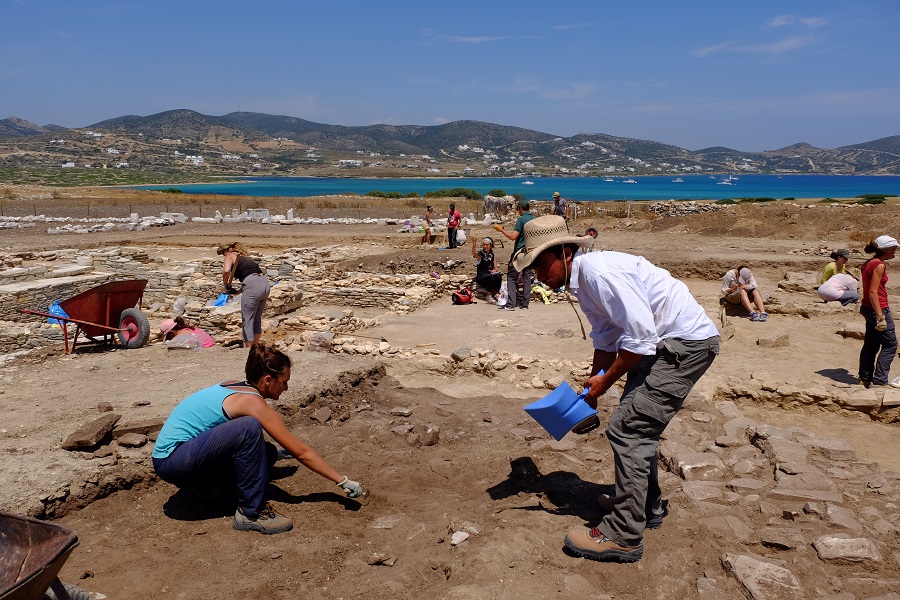
Archaeologists at work
As a human geographer studying the complexities of contemporary urban cultures, I have the distinct advantage over my archaeological colleagues in that if I need to understand ‘why’ I can ask someone. I am immersed in a world of material objects that can be traced and described in real time. Yet the contemporary never escapes the markers of the past. Our present is a palimpsest: the uppermost layer of thousands of years of human history reflecting that which we think we are at this moment in time.
Working out how we got to be where we are today requires excavation, figurative and literal, and if you think the latter is all about fancy trowel work and air-brushes think again. If you want to be an archaeologist, learn to love your pick-axe and your wheelbarrow. This was my first lesson after accepting an invitation (or perhaps more accurately, pleading to be allowed to go) to spend a week at the Paros Ephorate of Antiquities’ excavation on the Greek Island of Despotiko, run by Yannos Kourayos and his assistant Ilia Daifa, with collaboration from Birkbeck.
The site itself constitutes the only activity on Despotiko apart from the resident shepherd and his goats (the team stays on the neighbouring islands of Antiparos and Paros). But its position in the centre of the Cyclades archipelago suggests some past importance in maritime trade in the Mediterranean, and ritual significance in the Archaic (6th century BCE) sanctuary, possibly dedicated to the Ancient Greek deities Apollo and Artemis, that has already been uncovered and reconstructed in parts.
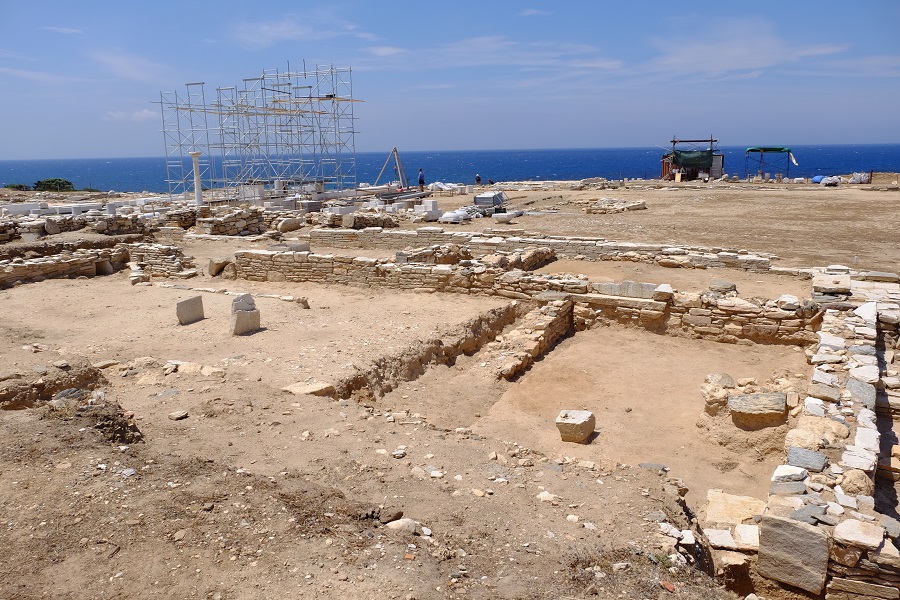
The excavation site
The excavation is only open for six weeks each year to allow the team to work on the site, and they are joined by international undergraduate and postgraduate volunteer students from Argentina, Brazil, Italy, Spain, the USA, and the UK, including students from Birkbeck. Starting at 7.30am (ish) with a ferry ride to the site, it’s then pickaxes and shovels, with the occasional sweeping up of dirt, until lunch at 11.30am (ish). We finished by 3pm (ish) so there was always time for a swim in crystal clear blue water before the ferry ride back to Antiparos.
On paper, this may not sound like a particularly difficult schedule but any romantic visions I had of spending days delicately dusting off ancient finds were soon dispelled by a relentless sun and the head-to-toe film of dirt disseminated by a prevailing westerly, giving me my second important lesson: always stay up-wind of anyone with a shovel. The first layer of an archaeological dig is all spade work and shifting large rocks out of the way by hand. It is rare in an academic life that our labour makes us so tired we are in bed and asleep by 7pm, but then it’s also not often that you can have a solid piece of work done at the end of the day: to look at your trench and say ‘I did that’ is highly satisfying.
However, my third lesson in archaeology was understanding the difference between digging a trench and digging holes, the latter being very bad. Each layer of an excavation has to go down as evenly as possible and if that means leaving exposed ancient pottery on the surface then so be it until the next layer is removed. Each layer is photographed, and finds from that depth carefully bagged, cleaned, re-bagged and labelled so that the research team knows exactly which part of the excavation they came from. It is painstaking work most definitely not for the disorganised, and randomly digging out individual artefacts just disturbs the layers and creates confusion. But leaving pieces of pottery exposed for any length of time was for me like putting a chocolate bar within arm’s reach and saying ‘don’t touch’. It is an incredible feeling to hold something in your hands that is over 2500 years old and such did my obsession with digging up bits of amphorae become that I almost had my trowel confiscated and had to banish myself to the cleaning area for a day for my own good.
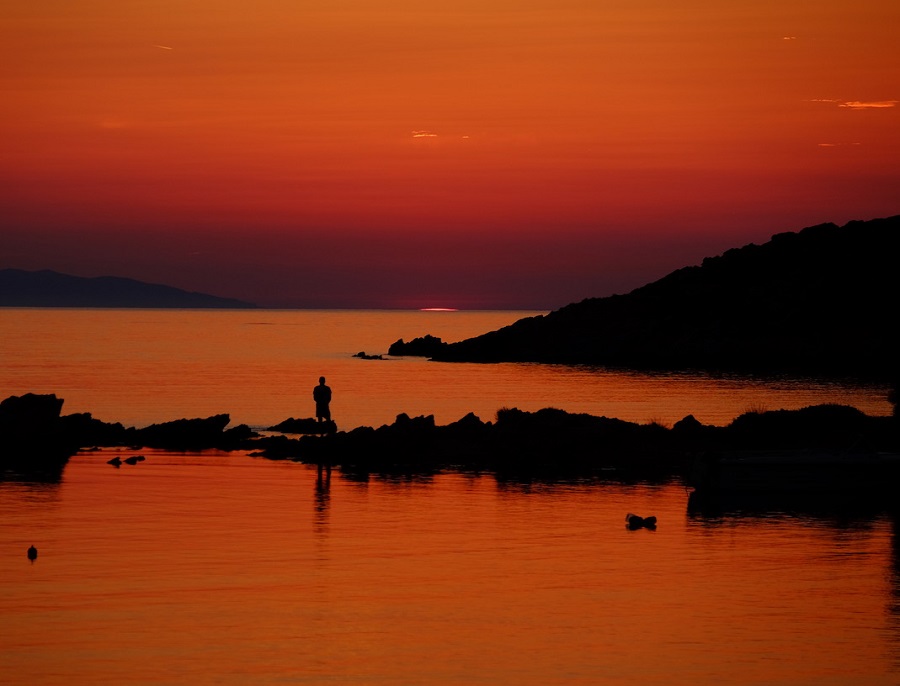
A sunset over St Georgios Antiparos
My love for pottery remains undiminished, perhaps because these battered shards of the everyday (cooking pots, water jugs, lamps) remind me of the continued importance of the quotidian in contemporary geographical research. They are part of the material record that tell us about our present, yet, given that we are ‘reading’ them thousands of years outside the context of their use, they also generate intrigue and controversy. In material artefacts, it is possible to see traces of trade, migration, war and civilizational collapse, but the pieces can’t always say why it happened. The order in which artefacts are found and analysed can change how a site is understood. For example, if household pottery is found first and only later a major ritual shrine is unearthed, or vice versa, does that change how we view what happened? And along with the mundane are the mysteries: at my trench, we discovered an alignment of rocks that could have been a wall, or maybe not. Like detectives, the archaeologists tried to determine where it might begin and end, if it had collapsed, what may have been built on top of it. We needed to determine this before we started moving rocks around in case we accidentally removed a 2500-year-old structure. It is the archaeologist’s expertise, gained through years of digging trenches, reading the archives and debating the alternatives with colleagues, that brings back to life a pile of rubble that can give us some explanation of the ‘who’, ‘what’ and ‘why’ of ancient history.
If you are interested in excavating such questions, as well as contributing to the material history of human existence, explore our new BA Archaeology & Geography. Students will get the opportunity to work on Despotiko as well as our other excavation, the Buried Humanities Field School at Must Farm.

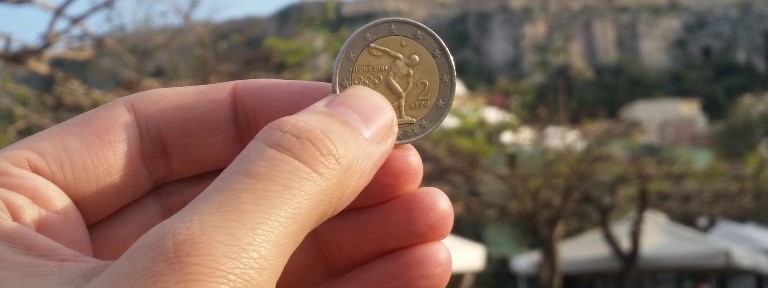
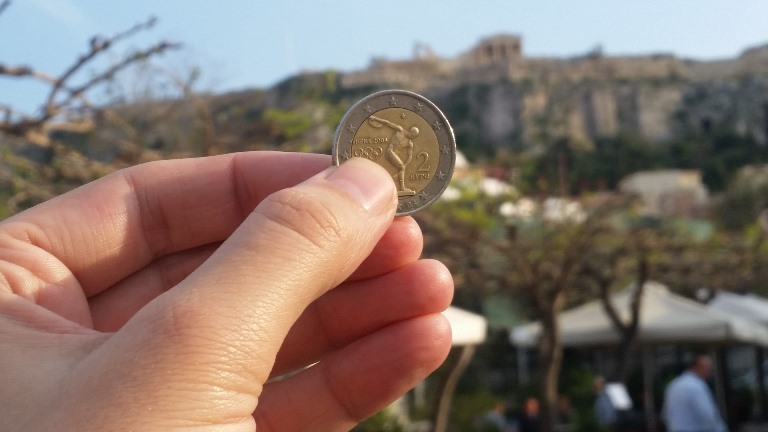 The aim of this project,which will be carried out through 2016 with my colleague
The aim of this project,which will be carried out through 2016 with my colleague